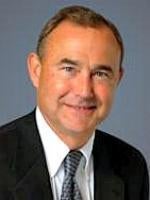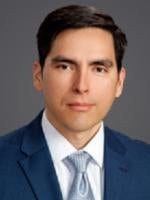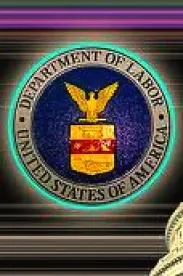On August 27, 2018, the U.S. Department of Labor (DOL) announced that it would be conducting a series of listening sessions in various cities across the United States to solicit feedback on the overtime rule. The DOL, which plans to update the Fair Labor Standards Act’s Part 541 white collar exemption regulations, held sessions open to the public in Atlanta, GA; Seattle, WA; Kansas City, MO; Denver, CO; and Providence, RI throughout September. On Wednesday, October 17, 2018, the U.S. Department of Labor’s (DOL) Wage and Hour Division (WHD) conducted its last public listening session to solicit views and opinions on the Part 541 overtime or white-collar regulations. This session capped offed five others that had been held in September 2018.
Kicked off by the secretary of labor’s chief of staff, Nicholas Geale, this public listening session was conducted by Mary Zeigler, the WHD’s assistant administrator for policy; Melissa Smith, the WHD’s director of the Division of Regulations, Legislation and Interpretation; and Keith Sonderling, the WHD’s senior policy advisor. Geale noted in his introductory remarks that the DOL’s regulatory agenda was now publically available and that the department plans to publish a notice of proposed rulemaking (NPRM) on the Part 541 regulations by March of 2019. As he had done at the prior listening sessions, Sonderling provided a federal advisory committee statement for the purpose of the listening session and went over some basic rules for those who wished to comment.
Some 30 individuals representing a broad spectrum of interests then provided comments lasting anywhere from 5 to 10 minutes each in duration. These speakers represented the interests of employee advocates, trade and business associations, private sector employers, public sector employers, educational institutions, adjunct professors, charitable and nonprofit entities, think tanks, and small businesses. Below we will highlight some of the recurring themes noted by various interested parties, in the Washington D.C. session and others, as reported by members of Ogletree Deakins’ Wage & Hour Practice Group members.
The 2016 Final Rule
During the various sessions, several employee-oriented attorneys, employee advocates, nonprofits, and think tanks expressed their support for the 2016 final rule, which a federal district judge enjoined shortly before it went into effect. This final rule would have increased the salary level from the current $455 per week ($23,660 per year) to $913 per week ($47,476 per year), among other provisions. One Washington D.C. session commenter described the 2016 final rule as well documented and considered, and another said it was a meaningful threshold that was important to employees, especially women.
Not only did these entities state this salary level amount was reasonable, but they also called upon the DOL and the WHD to defend the case involving the final rule and to implement it. The DOL filed an appeal of the lower court’s decision with the Fifth Circuit Court of Appeals, which has agreed to hold the appeal in abeyance to allow DOL to engage in new rulemaking. Note that during the Atlanta listening session, the WHD representatives conducting the meeting made clear that the goal of the meeting was not to discuss the 2016 changes to the overtime rule and that they would not be able to comment on the pending litigation surrounding the now-defunct Obama-era rule.
The comments from attendees at the Seattle listening session—who were overwhelmingly employee-friendly—focused on increasing the salary test to at least the $47,000 per year. Meanwhile, a few commenters at the Denversession noted their view that imposition of a higher salary basis would not result in more pay to affected employees because employers would simply convert exempt employees to non-exempt status and adjust hourly rates to account for anticipated overtime.
Nonprofit, Charitable Interests
During the D.C. listening session, a number of associations representing entities that provide an array of healthcare services, nonprofit or charitable organizations, and some public sector employers urged the DOL and WHD to take into account that much of their funding sources come from Medicare and/or Medicaid. They also recommended that the DOL phase in increases over a longer period of time to allow them to plan and budget for increases and to work with budgets as determined by the Centers for Medicare and Medicaid Services.
Commenters at the Denver session from the healthcare industry noted several of their concerns. One raised concerns that imposition of a high threshold would disrupt the use of fee basis compensation—which is how many healthcare employers pay their employees. Another commenter noted that the compensation of in-home healthcare services employees was directly tied to reimbursement levels from Medicaid and that without some adjustment to Medicaid reimbursement levels, they would not be able to pay their employees if the salary threshold is substantially raised.
Various speakers at the D.C. session called for the WHD to provide greater time to prepare for and phase in a new salary level test. Given that today’s employment market is tight, one representative questioned whether the timing of an increase in the salary level was necessary at this juncture. The speakers noted that nonprofits, charities, and educational institutions cannot recoup the increased costs associated with a higher salary level test as well as the private sector can.
A More “Reasonable” Salary Threshold
During the D.C. session, numerous entities that represent employers in specific industries and business interests generally stated that the current salary threshold needed to be increased and called for a higher salary level test that was “reasonable”; but they did not provide specific information as to what they considered to be a reasonable level. One entity suggested that a salary threshold in the low $30,000 range would be reasonable.
Many of these commenters explained negative ramifications of the 2016 final rule, which caused employers to begin reclassifying employees as nonexempt before it was enjoined. Those ramifications include reduced employee morale, loss of flexibility, lower compensation, and reduced hours of work. Almost all of these employer and business related entities spoke out against a provision in the 2016 final rule that would have included an automatic, periodic increase in the salary level.
Many of the same representatives endorsed a provision in the 2016 final rule that would allow certain nondiscretionary bonuses, incentives, and commissions to be included as compensation for purposes of meeting the salary level test. However, they contended that there should not be a limitation on the use of these payments (as the 2016 final rule contained) to meet the salary level test.
Many of the Kansas City session commenters focused on the methodology the DOL should use for updating the salary threshold. Most of those commenters agreed that the DOL should increase the salary threshold (with employer-side participants stressing that the threshold should be a floor, not a ceiling.) Further comments on the methodology of the salary threshold were as follows:
- Employer-side commenters:
- Most employer-side commenters suggested that the DOL follow its 2004 methodology.
- Several commenters suggested that the DOL adopt a regional approach.
- One commenter, who spoke on behalf of a Kansas agricultural group, suggested a salary threshold increase to approximately $30,000-$40,000.
- Employee-side commenters noted that the Obama-era overtime rule’s proposed salary threshold of $47, 476/year was “modest.”
Some attendees representing small business interests at the Denver session suggested that a new overtime rule should impose differences to the salary threshold based on regional cost of living differences. Others disagreed and commented that differing thresholds would make administration difficult to manage, especially for businesses operating in more than one area.
Some employer advocates at the Denver session argued that the DOL should adopt the 2004 methodology, which indexed a threshold based on the 20th percentile for salaried workers, in the updated rule.
National Uniform Versus Regional Salary Levels
During the D.C. session, the comments on whether the DOL should propose a uniform national salary level test or provide for regional variations in the salary level demonstrated a sharp divide between employer advocates and employee advocates. Most business representatives called for a uniform national rate to facilitate compliance. Employee representatives were less concerned with regional variations; they were more concerned with applying the salary level test in the 2016 final rule. This divide between employee and employer advocates also surfaced in comments made by those who encouraged the WHD to more closely adhere to the process used in the 2004 rulemaking and those who contended that the 2016 rulemaking was sound and reasonable in its analysis and a consistent application or extension of the 2004 methodology.
Changes in Duties Tests
Many speakers at the D.C. session representing different vantages brought up the topic of whether WHD should propose any changes in the duties tests. Most employer-oriented entities opposed any potential changes to the duties tests given that WHD planned to propose a new salary level test. On the other hand, almost all employee advocates endorsed changes to the duties tests if WHD was going to propose a salary level less than that of the 2016 final rule.
Commenters on both sides at the Kansas City session and those at the Seattle session requested more clarity from the DOL on the administrative exemption duties test.
Miscellaneous
- Several commenters at the D.C. session reviewed the purposes of the overtime provision in the Fair Labor Standards Act as justification for their positions.
- A representative of an association of institutions of higher learning who was present at the D.C. session noted how higher education was disproportionately impacted by the salary level of the 2016 final rule, which it argued was too high, and called on including the price of room and board in the compensation calculations for resident directors of dormitories. Another group questioned the need to continue the exemption from the salary level requirements for teachers and faculty.
- Finally, relying on the federal district court’s 2016 opinion, the National Federation of Independent Business questioned the DOL’s authority to include salary tests in the regulations and encouraged the DOL to seek an opinion from the Department of Justice on its authority to do so.
- Some commenters at the Denver session raised concerns about the prevalence of technology use, and in particular smartphones, among employees to communicate after-hours. A threshold that is too high, these attendees stated, would ignore the practicalities of modern business and render a substantial number of employees non-exempt.
Key Takeaways
While the listening sessions were useful forums in which the DOL could solicit information about its pending rulemaking in connection with the Part 541 regulations, the sessions, generally, did not elicit many new ideas or suggestions. Rather, many of the speakers were from entities that had filed comments to the 2017 request for information (RFI), and they highlighted their earlier written comments and stated that they would file additional comments when a NPRM is proposed.
Another interesting aspect of the D.C. session was not so much who was there and spoke but who did not speak. For example, no one from organized labor made any comments. Notably, as Sonderling stated in his comments, the listening session transcripts would not be considered comments for the NPRM; instead they will give the WHD factors and considerations to weigh as it prepares its NPRM for publication—hopefully by March of 2019.






 />i
/>i

